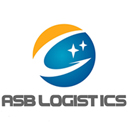
Welcome to ASB Logistics Co. Ltd
Chinese | Contact | Collection | Website Map | Help
NVOCC NUMBER:MOC-NV 06902

Welcome to ASB Logistics Co. Ltd
Chinese | Contact | Collection | Website Map | Help
NVOCC NUMBER:MOC-NV 06902
Contact us

Fax:
0086-755-2512 4462
Email:
inquiry@asb-china.com
chartering@asb-china.com
oogcontainer@asb-china.com
Address:
Chinese Shennan Road East Shenzhen Hongchang square 2110-2111

Browse:4701
From:ASB
Time:2016-03-12
A joint approach is necessary to safeguard the future of the refinery, chemical and energy cluster in Rotterdam and Moerdijk. This industry is important to the Dutch economy, but is under pressure. An action plan, written under the guidance of Rein Willems, former CEO of Shell, therefore proposes a scheme to optimise the existing industrial activities and to further modernise the industry cluster. Due to the complexity and urgency of this matter, it has been proposed to appoint a cluster supervisory director who will coordinate and drive this action plan.
Henk Kamp, Minister of Economic Affairs, welcomes the action plan:
“The industry cluster in Rotterdam and Moerdijk is of great importance to the Dutch economy. This cluster is quite rightly focussing on the future with this action plan. By making more efficient use of raw materials and energy, by supplying the region with CO2 and heat and by investing in technical innovations, the chemical industry will retain its international competitive position and industrial activities will remain in the region.”
Allard Castelein, CEO of the Port of Rotterdam Authority:
“The industry cluster in Rotterdam and Moerdijk provides 54,000 jobs and an added value of 10.5 billion euros, but is under great pressure internationally. For this reason, we would like to get to work on this action plan, together with the companies, the Ministry of Economic Affairs and Moerdijk.”
The action plan, written at the request of the Ministry of Economic Affairs and the Port of Rotterdam Authority, indicates how the industry cluster can use its favourable position to cope with challenges such as the low price of raw materials and energy elsewhere in the world and the sustained decrease in demand for oil products in Europe. This must occur within the context of a transition to a low-CO2 economy. The underlying principle is that the industry cluster in Rotterdam and Moerdijk must still be at the forefront in Europe in 2030. For this reason, the action plan is focussing on two paths: the strengthening of the competitiveness of existing companies and a modernisation plan focussing on the use of biomass, recycling, renewable electricity and technological innovations.
The Ministry of Economic Affairs, the Port of Rotterdam Authority and the Moerdijk Port Authority will remain involved in the implementation of the action plan ‘Working together on a cluster in transition’. The plans have already been developed to a large extent, but never before has the sense of urgency among companies and stakeholders been so widely felt.
The report specifies three plans of action to optimise the existing cluster:
1) The strengthening of the chlorine cluster in Rotterdam through chain integration.
2) The pooling of non-core activities. Through the joint exchange and processing of, for example, steam, waste water and silt, production costs and emissions will decrease.
3) The supply of valuable residues to the region. This mainly involves the use of residual heat and/or CO2 for the greenhouse farming and built environment sectors.
The report specifies two plans of action for the modernisation of the industry:
1) The use of new raw materials and recycling. The biggest challenge for Rotterdam will be to develop a bio-based cluster on the basis of bio-refining, where the second generation biomass supplied is transformed into glucose, ethanol and lignin.
2) The worldwide search for innovations that are relevant to the industry cluster, the application of new technologies and research into the opportunities for accelerating the transition.
The report specifies two plans of action for both the strengthening of the existing industry as well as the modernisation of the cluster:
1) The removal of tangible obstacles. For example, by deepening the Nieuwe Waterweg, by removing as far as possible uncertainty regarding NOx-emissions and a balanced attribution of emission allowances for CO2 with regard to supply to third parties.
2) The appointment of a cluster Supervisory Director. This director must act as a driver for the specified plans of action and, together with the cluster, draw up a policy agenda for the energy transition. According to the action plan, a budget of 2 million euros per year will be necessary for this.
Source: Port of Rotterdam Authority
 Bulk ships dying younger and faster...
Bulk ships dying younger and faster... China firms push for multi-billion doll...
China firms push for multi-billion doll... Newbuilding prices start retreating on ...
Newbuilding prices start retreating on ... Boxship Deployment Trends: New Loca...
Boxship Deployment Trends: New Loca... Newbuilding orders focused on specializ...
Newbuilding orders focused on specializ... Tankers: Asian VLCC freight rate d...
Tankers: Asian VLCC freight rate d... Dry bulk shipping fleet will grow by 1....
Dry bulk shipping fleet will grow by 1.... Dry bulk sectors struggling due to exce...
Dry bulk sectors struggling due to exce... Capesize slippage at 50% of orderbook...
Capesize slippage at 50% of orderbook... Dry Bulk Market: Finding the silver ...
Dry Bulk Market: Finding the silver ... Newbuilding activity grinds to a halt...
Newbuilding activity grinds to a halt... Oman Port Signs Iran Trade Deals...
Oman Port Signs Iran Trade Deals... Why a story about bulk shipping matters...
Why a story about bulk shipping matters... Global spot container rates hit record ...
Global spot container rates hit record ... More Mishaps on the Mississippi...
More Mishaps on the Mississippi... Asia Dry Bulk-Capesize Rates Flat ...
Asia Dry Bulk-Capesize Rates Flat ... China-owned ships: fleet expansion acce...
China-owned ships: fleet expansion acce... Port of New York and New Jersey Co...
Port of New York and New Jersey Co... Pace of Bulker Scrapping is Faster t...
Pace of Bulker Scrapping is Faster t... Rotterdam Port: Joint approach for th...
Rotterdam Port: Joint approach for th...
 sweep wechat
sweep wechat